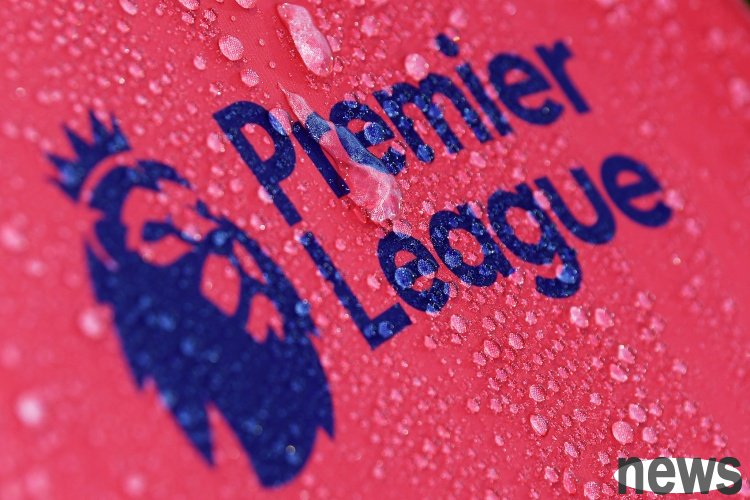The Telegraph reported that a number of Premier League clubs are preparing to oppose the new spending rules, and a key vote is imminent. Some Premier League clubs are preparing to block a proposal for new spending rules, which is due for a crucial v...

The Telegraph reported that a number of Premier League clubs are preparing to oppose the new spending rules, and a key vote is imminent.
Some Premier League clubs are preparing to block a proposal for new spending rules, which is due for a crucial vote on Friday. Bournemouth, Crystal Palace, Burnley, Fulham and Brentford are expected to vote against the team cost ratio (SCR) limit, a model designed to replace the existing profitability and sustainability rules (PSR). It is understood Leeds United may also join the opposition camp after hearing concerns.
Another opposition group, led by Manchester clubs and backed by the players' union, will also voice its objections to top-down "anchor" restrictions that prevent clubs at the top of the table from spending far more than those at the bottom. On the eve of clubs gathering at a central London hotel, opinion on the two key spending check reforms remains divided despite the Premier League's attempt to phase out the PSR next season.
Any changes to the Premier League rules require the approval of a two-thirds majority of 14 clubs. If Leeds United joins the ranks against SCR, it will only take one more club to join in and the change will be blocked.
Although the Premier League has been running SCR as a simulation system since last season to allow clubs to adapt, concerns over SCR have grown over the past few weeks.
What is SCR?
The SCR system actually reflects UEFA's Financial Fair Play restrictions. Clubs participating in European competitions are now capped at 70% of their total revenue on spending on player rosters and coaches, including transfer fees, wages and agent fees. Chelsea and Aston Villa were fined a combined approximately £14.7 million by UEFA last summer for breaching the 2024 regulations. The Premier League has proposed an SCR limit of 85%, giving clubs more room. Mid-table clubs have already bought themselves space through the PSR, which limits losses to £105m over a rolling three-year monitoring period, and see no need to change. Clubs like Brighton and Brentford already have lower wage and transfer fee amortization to revenue ratios. However, total wage costs for Bournemouth, Aston Villa and Nottingham Forest exceeded 120% of turnover in the most recent financial year available. The SCR will only take into account player and head coach expenses, so the percentage will naturally be lower.
Some clubs now appear to be forced to embrace change. One of the main arguments for abandoning the current Financial Fair Play rules (PSR) is that clubs are trying to find loopholes in the rules. Opponents of the new Spending Control Rules (SCR) believe the reform will force more club owners to offset costs through multi-club ownership, particularly when it comes to selling academy players. For example, there are no Financial Fair Play restrictions in France, which could lead to more Premier League clubs investing in sister clubs there.
What is an anchoring mechanism?
It is an attempt to control wealth disparities and maintain broad competitiveness in the world's richest domestic league. Under this mechanism, the total revenue the bottom clubs receive from central television broadcasts and prize money will determine the maximum payout for all teams. Currently in a trial phase, the system limits clubs to spending no more than five times the revenue of the bottom club. If the mechanism is introduced next season, clubs will effectively be allowed to spend around £600m a year. While it's impossible to know exactly what the maximum limit will be, if the same system had been applied last season, it would have been around £550m based on bottom club Southampton receiving more than £109m from central funds.
Arsenal were one of the main pushers for the introduction of this spending cap, which would limit spending to five times that of bottom clubs. But Arsenal's stance has softened under a new leadership team. Arsenal were one of 16 clubs to vote in favor of anchoring when a vote began last year. Clubs in Manchester are among the critics who believe the anchoring system would give the biggest European rivals such as Real Madrid an advantage. It is claimed that Real Madrid may have £100m more spending power than their English rivals due to the revenue injection from the new stadium. United's co-owner Sir Jim Ratcliffe said last year that this "will inhibit the top clubs in the Premier League".
Meanwhile, the Professional Footballers' Association threatened legal action. This week, the association met with captains from 20 top clubs to explain why they believe the SCR is a salary cap that could affect their earning capacity.
Why change?
Most clubs believe that the existing PSR system is no longer suitable. Some critics point to loopholes that have been exploited, such as when Chelsea sold its women's team to its parent company. Clubs such as Aston Villa and Newcastle have complained about their inability to close the spending gap with their more established Champions League rivals.
What is sustainability and system resilience testing?
The effective sustainability test as part three is the least controversial and aims to bring the system into line with football's new governing body. As part of this system, a liquidity test covering a season is designed to ensure clubs have sufficient resources to deal with known expenditure and any reasonable long-term fluctuations. In effect, this test checks whether a club is robust enough to cope with unexpected relegation or failure to qualify for European competition.